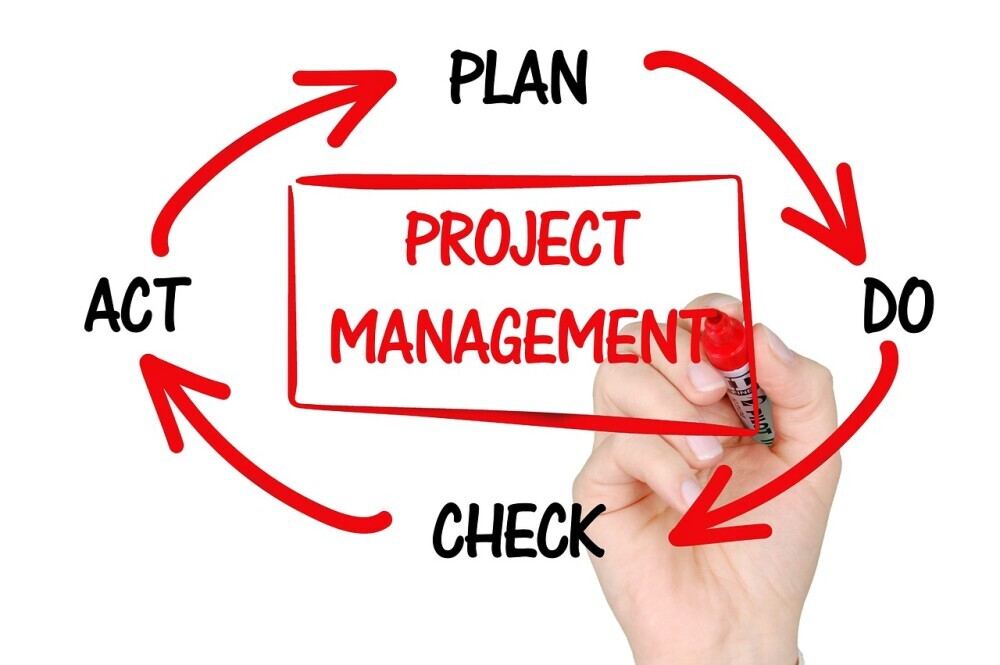
A Beginner’s Guide to AI-Based Project Management Tools
Project management is a complex undertaking, requiring careful planning, execution, and monitoring. In today’s fast-paced business environment, staying ahead of the curve is crucial, and Artificial Intelligence (AI) is offering powerful new tools to help project managers achieve greater efficiency and success. This beginner’s guide will explore the world of AI-based project management tools, explaining their benefits, key features, and how to implement them effectively.
Check out our AI promotion website here: https://alpusonlineai.com.
Understanding AI in Project Management
Before diving into the tools, it’s important to understand the role of AI in project management.
Defining AI: What it is and isn’t:
AI refers to the ability of computer systems to perform tasks that typically require human intelligence, such as learning, problem-solving, and decision-making.1 In project management, AI is used to automate tasks, analyze data, and provide insights that can help project managers make better decisions. It’s important to understand that AI is not sentient or capable of independent thought; it operates based on algorithms and data.
Overview of AI applications in project management:
AI is being applied in various areas of project management, including:
- Task management: Automating task assignments, scheduling, and progress tracking.
- Risk management: Identifying potential risks and predicting their impact on projects.
- Resource allocation: Optimizing resource allocation based on project needs and availability.
- Communication and collaboration: Enhancing team communication and collaboration through AI-powered tools.
- Reporting and analytics: Generating reports and providing insights into project performance.
Benefits of integrating AI into project workflows:
Integrating AI into project workflows can lead to several benefits:
- Increased efficiency and productivity: Automating repetitive tasks and streamlining workflows.
- Improved accuracy and decision-making: Providing data-driven insights and predictions.
- Reduced costs: Optimizing resource allocation and minimizing project delays.
- Enhanced collaboration: Improving team communication and coordination.
Check out our AI promotion website here: https://alpusonlineai.com.
Why You Should Consider AI-Based Tools
Despite the clear advantages, some misconceptions about AI persist.
Addressing common fears and misconceptions about AI:
Common fears and misconceptions include:
- AI will replace project managers: AI is a tool to augment human capabilities, not replace them.
- AI is too complex and expensive: Many user-friendly and affordable AI tools are available.
- AI is only for large corporations: AI tools are becoming increasingly accessible to businesses of all sizes.
Key advantages of AI-based tools in enhancing productivity:
AI-based tools enhance productivity by:
- Automating time-consuming tasks.
- Providing real-time insights into project progress.
- Facilitating better communication and collaboration.
Case studies: Successful AI implementation stories:
Numerous case studies demonstrate the success of AI in project management, showcasing improved project outcomes, reduced costs, and increased efficiency. Examples include projects that used AI to optimize resource allocation, predict project delays, and improve team collaboration.
Check out our AI promotion website here: https://alpusonlineai.com.
Key Features to Look For in AI Project Management Tools
When choosing an AI project management tool, consider these key features.
Real-time data analytics and insights:
The tool should be able to collect and analyze project data in real-time, providing insights into project progress, risks, and opportunities.
Automated task allocation and scheduling:
The tool should be able to automate task assignments, scheduling, and progress tracking, freeing up project managers to focus on more strategic activities.
Collaboration tools: Enhancing team communication and engagement:
The tool should provide features for team communication, collaboration, and document sharing, improving team coordination and engagement.
Check out our AI promotion website here: https://alpusonlineai.com.
Popular AI-Powered Project Management Tools and Their Benefits
Several AI-powered project management tools are available in the market.
Comparison: Leading AI project management tools in the market:
Examples include:
- Monday.com: Offers AI-powered features for automating workflows and providing insights into project data.
- Wrike: Provides AI tools for risk prediction, project planning, and resource management.
- Celoxis: Offers AI-powered features for project portfolio management and resource optimization.
Breakdown of distinct features and functionalities:
Each tool offers a unique set of features and functionalities. It’s important to compare these features and choose a tool that meets your specific needs.
Making a choice: How to decide which tool is right for you:
Consider factors such as:
- Your project management needs.
- Your budget.
- Your team’s technical expertise.
- The tool’s features and functionalities.
Check out our AI promotion website here: https://alpusonlineai.com.
Challenges in AI-Based Project Management Tools
Implementing AI tools also presents some challenges.
Data privacy and security considerations:
It’s crucial to choose tools that prioritize data privacy and security and comply with relevant regulations.
The cost factor: Initial investment vs. long-term gains:
While there may be an initial investment, the long-term gains in efficiency and productivity can outweigh the costs.
Dealing with change: User adoption and training:
Proper training and support are essential for ensuring user adoption and maximizing the benefits of AI tools.
Check out our AI promotion website here: https://alpusonlineai.com.
Steps to Implementing AI Project Management Tools Successfully
Implementing AI tools effectively requires careful planning and execution.
Evaluating current processes: Is AI the right fit?
Assess your current project management processes and identify areas where AI can provide the most value.
Training your team: Building AI literacy:
Provide training and support to your team to ensure they understand how to use the AI tools effectively.
Monitoring progress and adapting strategies for continuous improvement:
Continuously monitor the performance of your AI tools and make adjustments as needed to optimize their effectiveness.
By understanding the benefits, features, and challenges of AI-based project management tools, you can make informed decisions about how to leverage this powerful technology to improve your project outcomes and achieve greater success. Remember that AI is a tool to empower project managers, not replace them. Combining human expertise with the power of AI is the key to achieving optimal results.
Check out our AI promotion website here: https://alpusonlineai.com.

